If you have a question about acupuncture or herbalism, and do not see the answer here, then click here to send us an email and we will try to provide a prompt reply.
Acupuncture Questions and Answers
Why have acupuncture?
I believe that acupuncture is effective because it aims to treat both the symptoms and the causes underneath. In this way it will look at the cause of the headache rather than just providing pain relief in order to cure the problem rather than suppress the symptoms. It can treat conditions which are not easily explained in western medicine. Approaching a condition from this different Eastern perspective can often find other solutions to the problem that western medicine cannot. Acupuncture can also provide treatment without the side effects that many drugs can induce.
How does acupuncture work?
This is a difficult question to answer. For thousands of years the idea that illness occurs when energy flow is blocked, has been sufficient for millions of people. Much research is now being carried out in the West to answer this question but nothing has provided a complete explanation yet. We know that acupuncture causes the release of endorphins in the body (natural painkillers) and other hormones such as seratonin and that it also an effect on the adrenal glands. However this is just a small part of the picture and at present we have to say that we cannot fully explain how it works, we just know it does!
Does acupuncture work?
Quite simply yes! As the main form of treatment in the East for thousands of years, it could not have continued for so long if it did not work.
There is much evidence that demonstrates that effectiveness of acupuncture in treating certain conditions, eg back pain, asthma, sinusitis (the list goes on). The World Health Organisation now states that acupuncture is effective for a variety of conditions.
I feel that the way it treats the person rather than just the symptom is key in it¹s effectiveness.
Will it hurt?
The needles used are much finer than those normally used in injections and are not painful. The sensation felt is often described as a tingling or dull ache around the area. Patients often report feeling relaxed or invigorated during and after treatment. Acupuncture should not be a painful or unpleasant experience
How long will it take?
The first treatment will normally be for around an hour and a full history is taken. This includes all aspects of your health and family history. There will also be examination of the tongue and pulse, which give indications of how the energy is flowing internally.
Subsequent sessions will be shorter, approximately 40minutes.
Will I need to get undressed?
The majority of acupuncture points are below the elbow or below the knee. Therefore most treatments do not require the removal of clothing. However it may often be necessary to get to an affected area eg. in the case of back pain.
How many sessions will I need?
As each person and their condition is unique, the length of treatment differs. Change is usually felt after four treatments which are normally weekly at first. Sometimes treatment is dramatic and only one or two treatments are required while for other patients, results are more subtle and may take several months.
Is it safe?
All British Acupuncture Council Members observe a strict code of practice which governs their standard of care and level of conduct. They must have been trained for at least three years in Traditional Acupuncture and western science. All needles used are sterile and disposable. Patients receiving acupuncture are still eligible to donate blood.
Will my insurance pay for acupuncture?
Many insurance companies now cover acupuncture treatment by either self-referral or referral from your GP or specialist. If uncertain, please check with your insurer. BUPA and PPP do not cover traditional acupuncture. Our practitioners are members of differing professional bodies so please check before appointments
Will my GP be informed?
Generally we do not write to GP’s or consultants unless necessary but if we do we will expressly ask for consent, unless you advise us that you would prefer not. We believe in and encourage communication between health professionals for the good of the patient.
Herbalism Questions and Answers
What is the difference between Chinese and Western herbalism?
Western herbal medicine primarily treats diseases or symptoms such as headaches, runny nose, backache etc. Chinese herbal medicine designs a prescription that will deal with the symptom but also the underlying condition that led to the problem arising. In dealing with the cause of the symptom, more permanent relief is sought.
What does Chinese herbalism treat?
The majority of conditions treated by acupuncture can also be treated with Chinese herbs and often the two therapies are combined for best effect. However, Chinese herbs are especially good for promoting the body’s ability to heal and recuperate. In this way common colds and flu, amongst other acute diseases respond well to herbs. Skin conditions such as eczema, psoriasis, dermatitis or acne all respond well to herbalism. Gynaecological disorders and infertility respond particularly well, autoimmune diseases and degenerative diseases due to aging can also be helped with Chinese herbs.
I have heard that I will have to boil up the herbs. Is this true?
While, on occasion the boiling up of herbs may be necessary, in the majority of cases this can be avoided. The remedies can either be provided in ready made pill for or by having the herbs ground up into fine powder which is taken as a tea or put into capsules. This then allows for the herbs to be taken quickly and easily without disrupting peoples busy lives.
Can Chinese herbs be taken during pregnancy?
Yes, if prescribed by a qualified herbal practitioner. Herbs can be very effective in the treatment of various disorders during pregnancy.
